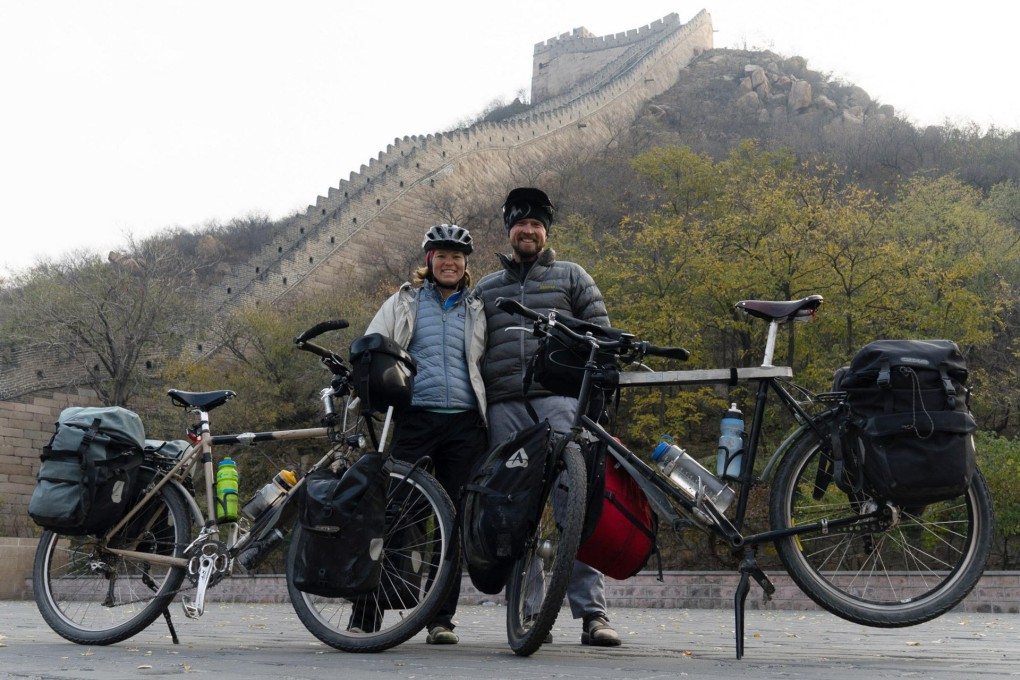Newlywed Americans tour Asia by bike, observe China and its environment
Warm hospitality during Asia climate change trip forms lasting memories for travelling couple

Lindsey Fransen and David Kroodsma, newlyweds from California, decided to bike across Asia for their honeymoon. For years, they had worked on water and climate issues and decided to use the cycling tour to see how the region was dealing with environmental issues like water stress and greenhouse-gas emissions. Six months ago they set off on from Istanbul and biked through eight countries in Central Asia. They have now reached China, which they plan to explore for a month. So far they have ridden more than 8,300km. The couple share their thoughts on China and its environment.
The whole goal is to have an international perspective and share what we've learned on the journey with the world. We'd like to let people understand the world is just a bike ride away. People think the world is a very scary place, especially in the last year with the unrest in the Middle East and Russia. You get very scared about that part of the world. But when you cross country borders by bicycle, it's like having the opposite experience. You see that most people are really generous and friendly. It gives you a very positive view on humanity. One thing in particular we do on our journey is try to talk to high-school students and share our story. The high-school students are about to make decisions about what to do with their life. We want to get them excited about seeing the world and thinking from an international perspective. We've talked to dozens of schools so far on our journey, and we've talked to a few in China.
China is more diverse than we thought. We know that it is geographically diverse, as well as culturally. It's really fun to see that from a bicycle. On our way we passed Xining [in Qinghai ] - there were religious celebrations going on. You can tell the different religious areas from the different architecture, culture, languages and clothes. We keep hearing the Chinese old saying that "the mountains are high and the birds are far away". And it really felt like that in different areas. One thing that really surprised us was a number of enormously large power plants along the Yellow River in north China. It gives us complicated feelings. They are indeed providing energy to help the Chinese with their lives. But when you look at these power plants, they are causing climate change and are the reason world pollution has skyrocketed in the last few years. On the other hand, there is also renewable energy developing in China, which can be promising.